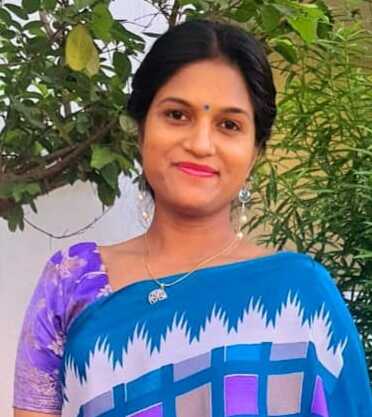Transformative Power of Education: Investment in Minds and Futures


Education is a strong tool used for positive change needed for shaping the minds and building the futures contributing in transforming the societies and nation. Maulana Abul Kalam Azad, a notable figure in India’s independence movement, went beyond his position as a political leader to become a visionary who deeply saw the transformative potential of education in the process of nation-building. On National Education Day, communities, legislators, and educators come together to symbolically celebrate the transforming impact of education. The focus should be on closing gaps and removing obstacles that might prevent some groups from getting an education. Investment in education would lead to empowered minds which further paves the path of enlightened means. Long-term gains come from education investments because they end the poverty cycle. The most crucial factor in producing global citizens is education. People who are exposed to a variety of beliefs, customs, and points of view grow to value variety and intercultural understanding.
Education does not only happen in formal settings or throughout one stage of life. It makes it possible for people to learn novel services, regulate to changing circumstances, and keep oneself relevant in a changing world.
Through empowering underprivileged groups, education fosters inclusivity and lessens socioeconomic inequalities. Education is the most crucial factor in producing global citizens. Exposed to a range of perspectives, cultures, and worldviews, one develops a respect for diversity and cross-cultural understanding. In transformative education, the goal is to create happy, well-rounded learners who can act responsibly and make informed decisions on a local, national, and worldwide level. There is no denying that education has a positive economic impact that goes far beyond budgetary concerns. In the field of educational research, citing education’s transformative potential has become commonplace. A “transformative” approach to teaching and learning is being called for by fields as dissimilar as adult education and school leadership, as well as by fields like educational psychology and social justice education. Education not only changes brains, but it also moulds perspectives and instils ideals that are necessary for enjoying the outside world. Making sense of things is the essence of learning. It is rightly said that “To make meaning is to make sense of an experience. We do this by interpreting it, and when we use this interpretation to inform future actions or decisions, making meaning transforms into learning” (Mezirow, 1990,Warrel and Kawalilak, (2011). Communication, resilience and teamwork qualities are also enhanced by imparting specific knowledge through different higher education courses. It gives individuals the courage to pursue what they want to do no matter what obstacles they face. People can explore their greatest interests and hobbies through education, which can help them identify their strengths and shortcomings. Making wise decisions in life and in one’s work requires self-awareness.
Education raises one’s sense of self-worth, self-assurance, and personal initiative. It gives people the means to discover and follow their goals and passions, empowering them to live happy, meaningful lives and make wise judgments (Guajardo & Casaperalta, (2008). There are various principles of transformative education like human rights, sustainability, value systems, diversity, holistic development and many more. Human rights and value systems are greatly supported by the transformative education by working on the developing the personality and strengthening of respect for basic human rights. Principles of transformative education if followed by the higher education institutes in the country and worldwide would contribute in the development of the economy as well. Reducing poverty and social inequality is largely dependent on education. It equips individuals with the knowledge and skills necessary to break free from the cycle of poverty, obtain better employment, and improve their quality of life.
Education is a transforming tool that promotes social progress, individual empowerment, and sustainable development. Through the imparting of knowledge, skills, and values, education moulds minds and changes communities. However, overcoming obstacles, advancing diversity, and encouraging teamwork are necessary for education to reach its full potential. By recommitting to providing high-quality education to everyone, we can help each person reach their full potential and build a better future for future generations. Investing in education and establishing an inclusive and empowering learning environment for everyone is the joint duty of governments, institutions, educators, and society at large. Together, let’s create a society in which access to a good education is both a fundamental right and a means to a prosperous and just future.
References:
Mezirow, J. (1990). How critical reflection triggers transformative learning. In J. Mezirow & Associates (Eds.), Fostering critical reflection in adulthood (pp. 1-20). San Francisco: Jossey-Bass.
Warrell, J., & Kawalilak, C. (2011). Transformative learning is not an add-on–It is the essence of adult education.
Guajardo, M., Guajardo, F., & del Carmen Casaperalta, E. (2008). Transformative education: Chronicling a pedagogy for social change. Anthropology & Education Quarterly, 39(1), 3-22.
Authored By

Dr. Renu Yadav
Assistant Professor
Department of Management & Commerce
The NorthCap University














